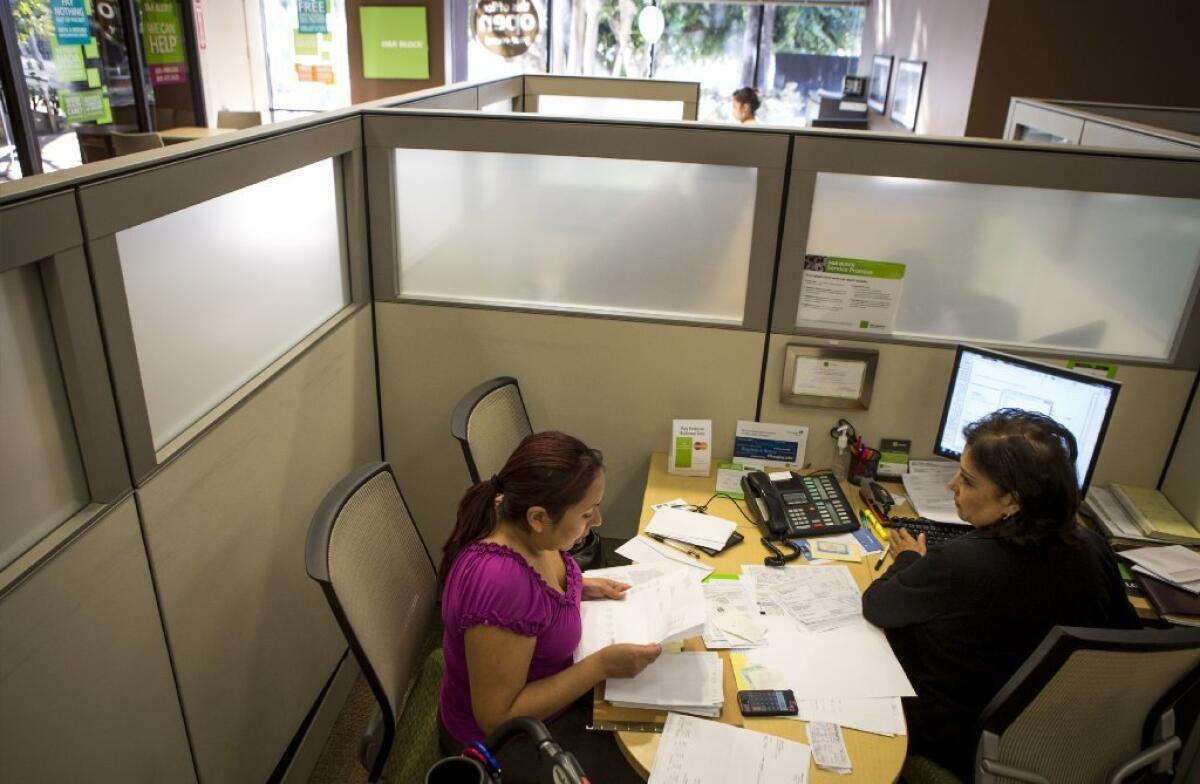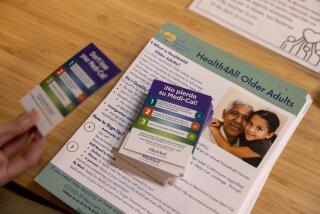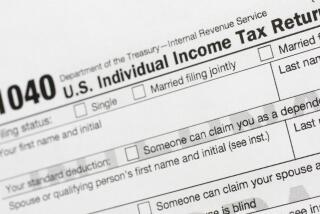Consumers could be surprised at tax time due to federal health law

Some families may end up owing Uncle Sam a sizable refund if they accept government help on buying health insurance next year under President Obamaâs Affordable Care Act.
A study published Monday in Health Affairs estimates that 38% of families that qualify for federal premium subsidies might have to repay some portion if changes in their household income arenât reported to the government.
These subsidies are a crucial part of the federal healthcare law intended to help make insurance more affordable for lower- and middle-income people. Individuals earning less than $46,000 a year, and families below $94,000 annually may qualify for these premium tax credits.
But a raise, bonus or other unexpected income during the year could alter a personâs eligibility and subsidy amount, triggering a repayment when the person files income tax forms for 2014. Some policy experts worry that experience could sour people on the healthcare expansion.
âThereâs the potential for some sizable repayments,â said Ken Jacobs, the studyâs lead author and chairman of the UC Berkeley Center for Labor Research and Education.
âEven if a small number of people owe a lot of money back that could generate fear of taking the subsidies. You donât want to scare people from enrolling,â Jacobs added.
At particular risk of refunds, researchers said, are people who are near the eligibility cutoff for the subsidies. The tax credits are on a sliding scale basis up to 400% of the federal poverty line.
For instance, a family of four in California that receives a year-end bonus that puts them over that 400% income threshold could be required to repay more than $7,000, according to Jacobs.
Story gallery: Healthcare law comes to California
The subsidy repayments are capped for lower-income people under the law.
The study said prompt notification of income changes so the subsidies can be adjusted could reduce the number of people who owe repayments by as much as 41%. Also, the size of the typical repayment could be cut by as much as 60%, according to the study.
âTimely reporting will make a very big difference,â Jacobs said.
In most cases, the federal government will pay the monthly subsidy directly to the customerâs private health insurer and the policyholder will pay any remaining premium.
In Washington, D.C., Jacobs said, the districtâs exchange has set the default subsidy to 85% of the full amount to give people some financial cushion against receiving too much throughout the year. Even in that case, he said, consumers can still elect to take the full amount if they want.
Peter Lee, executive director of Covered California, said the stateâs health exchange will work hard to educate residents about how the subsidies work and the importance of promptly reporting changes in income to avoid surprises later on.
âWe donât want to be on the paternalistic side of saying, âWe think you should save more to the end,ââ Lee said. âBut we do want to reach out and let people know what the risks are. It is a big deal.â
ALSO:
48% of policyholders will get health-law subsidies, report says
As healthcare overhaul nears, many consumers still in the dark
California gives consumers detailed rates under healthcare overhaul
More to Read
Inside the business of entertainment
The Wide Shot brings you news, analysis and insights on everything from streaming wars to production â and what it all means for the future.
You may occasionally receive promotional content from the Los Angeles Times.











